1. Excitement
On a train to Beijing in the middle of the night, a man readies himself for sweet, unexpected restroom love with a Chinese girl he met just the day before. Just then, his hated cellphone rings. It’s his on-again-off-again girlfriend half a world away in Paris, calling with the news that her father has drowned, had a heart attack, or both. The man sits on the train in total darkness, listening on his phone to nothing but the sounds of a Paris gallery at midday as his semi-girlfriend runs tearfully through it, having quickly forgotten she’d made the call at all.
I don’t know about you, but if an author writes a scene like that, I want to read his entire oeuvre. I heard this vignette of a man, his Chinese almost-lover, and his distraught Parisian girlfriend discussed on KCRW’s Bookworm, which at times like this feels like my own personal contemporary fiction tipster. Host Michael Silverblatt turned out to be talking to the Belgian novelist Jean-Philippe Toussaint, well-known in the Francosphere (and not unheard of as far afield as East Asia) since the mid-1980s, but not an object of English-speaking readers’ attention until two decades later.
That is strange. It’s not as if some native writer in North America, the United Kingdom, or anywhere else coated in the English language had already filled Toussaint’s niche. In order to fill his niche, a writer would have first had to find it when just describing it has proven a complicated task for Toussaint’s admirers, critics, and even translators. Not particularly shy about discussing the motivations behind his work, Toussaint himself has made a few statements about what’s important to him.
He placed great importance on humor at the beginning of his career, and though to an extent he still does, he’s since balanced it with a certain wistfulness. He eschews shades of gray, but he places so many black and white extremes so near to one another that, if you step back, they look like gray. He believes novels have no political role, only an aesthetic one. He deals with both the little irritations and the Big Questions, usually in as close a proximity as possible. He respects no boundary between fiction and nonfiction. And as he said in that Bookworm conversation, you can perform all the experimentation, all the rigid structuring, all the nouveau roman stuff you want, but if your book isn’t first and foremost exciting, hang it up.
2. The impassive three (or two)
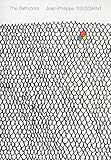 To be sure, Toussaint nevertheless gets called a novelist fascinated by structure. In 1985’s The Bathroom, his first book, you see that impulse at its least masked. The first and last sections are both called “Paris”. The middle, longer, section, is “The Hypotenuse”. Each of those sections comprises a string of numbered — not quite paragraphs, but — chunks of text. The first “Paris” has 40 chunks; “The Hypotenuse” has 80; the second “Paris” has 50. I’m not sure that would actually make a triangle.
To be sure, Toussaint nevertheless gets called a novelist fascinated by structure. In 1985’s The Bathroom, his first book, you see that impulse at its least masked. The first and last sections are both called “Paris”. The middle, longer, section, is “The Hypotenuse”. Each of those sections comprises a string of numbered — not quite paragraphs, but — chunks of text. The first “Paris” has 40 chunks; “The Hypotenuse” has 80; the second “Paris” has 50. I’m not sure that would actually make a triangle.
Some describe Toussaint as a novelist fascinated by goofy situations, so fascinated that he writes them as if they’re the most normal in the world. “When I began to spend my afternoons in the bathroom, I had no intention of moving into it,” goes the narrator’s first line. Yet move into the bathroom he has. Some activity swirls around him as he settles into his lavatorial routines, though he’d rather it didn’t. He receives a letter of invitation from the Austrian embassy. Certain it came by mistake, he nonetheless fantasizes about the soirée it announces. His girlfriend Edmondsson, an art gallery employee, hires a couple of Polish painters exhibited by her workplace to paint the apartment. They don’t seem to do much painting, instead spending most of their energy on semi-successfully skinning a pile of octopuses.
The entirety of “The Hypotenuse” takes place in Venice, where the narrator goes “abruptly, without telling anybody.” Edmondsson visits him there, but eventually she spends her days at various Venetian cultural attractions while the isolated protagonist spends his days running imaginary international darts tournaments. Then comes the book’s most memorable event:
Edmondsson found me a bore. I let her talk and went on with my darts game. She asked me to stop and I didn’t answer. I was sending darts into the target, stepping up to pull them out again. Standing in from of the window, Edmondsson stared at me. Again, she asked me to stop. I hurled a dart at her with all my strength, and it stuck straight in her forehead.
Certain English-language press materials describe Toussaint as a “comic Camus,” and with the Meursault-shooting-the-Arab flavor here, no wonder. Both characters commit their acts of violence suddenly, out of what appears to be nothing more than irritation. (“When The Bathroom’s narrator throws a dart at Edmondson’s forehead,” Toussaint said in one interview, “I understand his gesture and I find it unforgivable, all at once.”) Yet whereas Meursault’s shot lands him on the 1940s Algerian equivalent of death row, The Bathroom dude’s stray dart seems to bring no discernible major consequences at all. You can call this bad storytelling — maybe it is — or you can call this a crock of Frenchy bullshit — maybe it is — but the dart incident goes on less as a driver of the plot than as a sort of spill that seeps into the story’s very fabric.
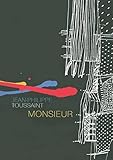 The Bathroom’s protagonist has no name, as is the case with nearly all of Toussaint’s protagonists. This makes the few exceptions striking, and the first of them would come the following year in Monsieur. Admittedly, it’s not much of a name; he’s called Monsieur. Employed in some executive position at Fiat, he displays “in all things a listless drive.” Motivating all Monsieur’s acts is a deep-seated desire not to have to do more of them.
The Bathroom’s protagonist has no name, as is the case with nearly all of Toussaint’s protagonists. This makes the few exceptions striking, and the first of them would come the following year in Monsieur. Admittedly, it’s not much of a name; he’s called Monsieur. Employed in some executive position at Fiat, he displays “in all things a listless drive.” Motivating all Monsieur’s acts is a deep-seated desire not to have to do more of them.
Monsieur’s carefully cultivated idleness at work somehow convinces his boss of his pure dedication. He injures his wrist playing soccer and either does or does not have it x-rayed. When his relationship with his fiancée disintegrates, he simply remains in her family home, thinking it easier than moving out. When his ex’s mother finally points Monsieur toward a new place to live, a geologist neighbor has him take dictation for the book he’s writing. Monsieur dislikes this, and comes to perceive only one way out: moving again.
I struggled even to summon that short list of events to mind, partly because Toussaint’s books are so similar — “I think a real writer always writes the same book,” he’s said — but partly because his work feels engineered to make you to forget the plot. Whoever Toussaint casts as the central character, I come away thinking not about what they’ve done but how they’ve thought, how they’ve perceived. I imagine this seems too terribly Gallic, but remember, Toussaint is Belgian. World of difference.
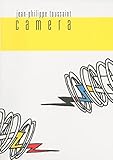 Though Toussaint’s American fan base, such as it is, has received Monsieur as a favorite, Europe treated it as a sophomore slump. They applauded 1989’s Camera as a return to form, and strictly speaking, it is, especially if you consider protagonist namelessness to be a pillar of that form. Perhaps this marks the return of The Bathroom’s “hero”; perhaps it doesn’t. The book’s also got one of the most brazenly mild openings I’ve ever read: “It was at about the same time in my life, a calm life in which ordinarily nothing happened, that two events coincided, events that, taken separately, were of hardly any interest, and that, considered together, were unfortunately not connected in any way.”
Though Toussaint’s American fan base, such as it is, has received Monsieur as a favorite, Europe treated it as a sophomore slump. They applauded 1989’s Camera as a return to form, and strictly speaking, it is, especially if you consider protagonist namelessness to be a pillar of that form. Perhaps this marks the return of The Bathroom’s “hero”; perhaps it doesn’t. The book’s also got one of the most brazenly mild openings I’ve ever read: “It was at about the same time in my life, a calm life in which ordinarily nothing happened, that two events coincided, events that, taken separately, were of hardly any interest, and that, considered together, were unfortunately not connected in any way.”
Over the remaining 109 pages, the narrator hangs around the licensing office drinking tea and reading the paper, falls in with a single mother working the desk there, gets driven around by her mildly eccentric Eastern European dad, eats olives, gets a pedicure, crosses the Channel, goes around Europe, finds a camera on a boat, and throws the camera off the boat. But is there any point in plot summary here? Toussaint’s books practically exist to argue that events don’t really matter; it’s all about the consciousness interpreting them.
Toussaint has mentioned in a few interviews his opinion that novels should be “infinitesimal,” that they ought to put the infinitely small right alongside the infinitely huge. Hence Camera’s celebrated passage (among Toussaint fans) analogizing the eating of an olive with a fork to nothing less than a strategy for taking on reality:
I vaguely felt that the reality with which I was grappling was beginning to show some signs of fatigue; it was beginning to soften and slacken, oh yes it was, and I had no doubt that my repeated assaults, in their tranquil persistence, would end up exhausting reality little by little, as one wears out an olive with a fork, if you will, by pushing down on it lightly from time to time, and then when, weary, reality finally offers no more resistance, I knew that nothing could then stop my impetus, a furious surge that had always been in me, strengthened by everything I had accomplished.
If this isn’t your bag, you could just take Camera as a love story between the protagonist and Pascale, the woman who, in a different reality, would have issued him a driver’s license. But on this inferior approach to reading Toussaint I can do no better than Tom McCarthy, a huge Toussaint fan, who compares it to student guides to Ulysses that “try to persuade us that what’s ‘really’ going on in such and such a scene is Bloom pining for Molly, for example. (‘No,’ I always want to shout out when I read accounts like these, ‘what’s really going on is tramlines vibrating, soap singing and language rioting, just like it says!’).”
3. Narratives of futility
Published in French in 1991, La Réticence, alas, has yet to make it to English. Word on the street is that it represents the zenith of Toussaint’s happening-free narratives. The protagonist sets out on a holiday to the fishing village of Sasuelo, which turns out to be quiet — yes, too quiet. In Context, Warren Motte writes that “Nothing happens here. Or rather very little. Consequently, that very little assumes enormous proportions in this deliberately impoverished narrative economy. The narrator draws wild inferences from the lack of events in Sasuelo, imagining that the Biaggis are conspiring against him. Structuring his text like a detective novel, Toussaint leads us through an intrigue constructed upon axioms that prove in the end to be false.”
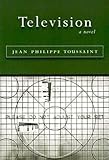 Shaky assumptions also undergird 1997’s Television, Toussaint’s best-known and most outwardly comic novel. Its own nameless narrator ambles around Berlin, supposedly on some sort of academic sabbatical to write a book about Titian. Having just seen his wife and son off on a mini-vacation to Italy, he relegates himself to the company of his computer’s blinking cursor. Displacement? Check. Isolation? Check. Realizing how lazy his increasingly expansive television-watching schedule has made him, he’s decided to quit that habit cold-turkey, which both reduces and intensifies that isolation.
Shaky assumptions also undergird 1997’s Television, Toussaint’s best-known and most outwardly comic novel. Its own nameless narrator ambles around Berlin, supposedly on some sort of academic sabbatical to write a book about Titian. Having just seen his wife and son off on a mini-vacation to Italy, he relegates himself to the company of his computer’s blinking cursor. Displacement? Check. Isolation? Check. Realizing how lazy his increasingly expansive television-watching schedule has made him, he’s decided to quit that habit cold-turkey, which both reduces and intensifies that isolation.
Yet the task of not watching television, which almost completely eclipses the task of writing about Titian, bounces the protagonist from vignette to sedately weird Berlin vignette. He wanders a museum, stopping to intently contemplate its televisual bank of security monitors. He climbs out his neighbors’ bathroom window into their kitchen window in order to remove their fern from the refrigerator before they notice he put it there in the first place. He sits in for a psychiatrist friend, counseling his patients for same-day cash. He sees an episode of Baywatch playing in the distant window of another building while he hears its sound coming from the set in a nearby room. In a sequence of especially inexplicable beauty, he looks out at Berlin from the cramped cockpit of a small plane piloted by one of his academic buddy’s students, a sullen girl, quite possibly hung over, with a penchant for flying as closely over buildings as possible.
Call this fragmentation, call it pointillism; I like stories told this way. In fact, they’re barely stories; they’re fabrics. Dalkey Archive’s press materials compare Toussaint’s novels to the films of Jim Jarmusch and Jacques Tati. I can’t call that inaccurate, in the sense that both directors’ work deals similarly with individuals drifting through, and failing to understand, complicated systems. But the filmmaker Television really gets me thinking about is Chris Marker; the detached, clear voice of Sans Soleil and the like make the world interesting in the same way Toussaint’s prose does.
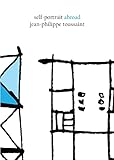 Speaking of the world, the travel-structured Self-Portrait Abroad came along in 2000. Despite its many resemblances physical and stylistic to Toussaint’s other books, one factor complicates everything: not only does this protagonist have a name, that name is Jean-Philippe. What’s more, his wife’s name is Madeleine. Toussaint’s wife is named Madeleine! (“I will call Madeleine Madeleine in these pages,” he declares, “to help me get my bearings.”) Both authors, Jean-Philippe and Toussaint are forever globetrotting, trying to make various speaking engagements.
Speaking of the world, the travel-structured Self-Portrait Abroad came along in 2000. Despite its many resemblances physical and stylistic to Toussaint’s other books, one factor complicates everything: not only does this protagonist have a name, that name is Jean-Philippe. What’s more, his wife’s name is Madeleine. Toussaint’s wife is named Madeleine! (“I will call Madeleine Madeleine in these pages,” he declares, “to help me get my bearings.”) Both authors, Jean-Philippe and Toussaint are forever globetrotting, trying to make various speaking engagements.
On top of all this, I’ve heard rumors that the pieces Self-Portrait Abroad comprises are all or mostly previously published travel writing. So jeez, I don’t really know what to say about the nature of this book, other than that it delivered to me an unpindownable sense of literary pleasure. Whether you’ll feel the same depends on if you like your plots to run in the lowest possible gear, allowing the author the time and space to make his fascinatingly detached observations before his characters reach minuscule victories or, more likely, wet-fuse fizzles. One Kyoto section ends with Jean-Philippe arriving in an ambulance at a friend’s house (he hitched a ride when it responded to the running-over of a nearby cyclist) only to find him not at home. A game of boules that Jean-Philippe wins with a particularly lucky move. “The best day of my life,” he calls it.
4. Marie
“Day was dawning over Tokyo, and I plunged a finger into her asshole.” There we have, in sentence-sized microcosm, much of what I, personally, find appealing Toussaint’s work. Yet another nameless narrator finds himself in a situation he didn’t expect in a place he didn’t expect it to happen, one he wound up in by only the faintest traces of his own volition. Just as something grand and exotic happens on a large scale, a much smaller scale presents an action decidedly more, er, intimate.
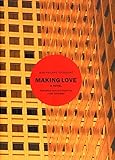 If all you knew about 2002’s Making Love was that it contains that quoted line and it opens with the protagonist handling his precious bottle of hydrochloric acid — “I carried it around at all times, with the idea of one day throwing it right in someone’s face” — you might assume it to be the work of one of those European “transgressives.” On the contrary; I’ve read few novelists less transgressive than Toussaint. Nobody’s numbly getting that acid dripped onto their nipples or anything. (Maybe I’ll get some of that when I write my Michel Houellebecq primer.) That plunge is by far the most sexually unconventional act on offer in the book, the first but not the last to feature Marie Madeleine Marguerite de Montalte, the owner of the orifice in question.
If all you knew about 2002’s Making Love was that it contains that quoted line and it opens with the protagonist handling his precious bottle of hydrochloric acid — “I carried it around at all times, with the idea of one day throwing it right in someone’s face” — you might assume it to be the work of one of those European “transgressives.” On the contrary; I’ve read few novelists less transgressive than Toussaint. Nobody’s numbly getting that acid dripped onto their nipples or anything. (Maybe I’ll get some of that when I write my Michel Houellebecq primer.) That plunge is by far the most sexually unconventional act on offer in the book, the first but not the last to feature Marie Madeleine Marguerite de Montalte, the owner of the orifice in question.
A big-name fashion designer and the narrator’s longtime girlfriend, Marie has come to Tokyo to put on an exhibit, and she’s brought the narrator along so they can break up. As a means of decoupling, this at least beats the hell out of an SMS message. This broad aim declared, nearly every element of the plot conspires to create a state of hazy unease. The text delivers it with a curious resignation, in both senses of the word curious. The protagonist is traveling with his girlfriend, but she’s mostly occupied with professional obligations. And while she technically retains the title of girlfriend for the moment, both she and he realize the union nears its end. This all goes down in a land of whose language the protagonist is more or less ignorant; what’s more, he’s usually outside in particularly desolate wee hours. On top of that, he spends a third of the novel suffering under a disorienting fever, and let’s not forget the free-floating question of who best to splash that acid on.
Running barely over 100 pages — not that any of Toussaint’s novels exceed 170 — the book operates under what seem to be stiff textual and psychological confines. Its most harrowing piece of action comes when the narrator, his head clouded with sickness, hops on a train to Kyoto to visit a mostly absent Western teacher friend. He struggles to find his pal’s house and, once there, collapses on a mat and shivers for days. This situation is as strange and outwardly unproductive as he and Marie’s last-gasp attempts at sex early in the novel or his late-night break-in to the hotel gym to swim a few laps. Yet there’s an intriguing interiority here, not just that of the Westerner bumbling through Japan, but specifically of the Francophone Westerner bumbling through Japan. I’ve long felt those cultures go well together, for sufficiently loose definitions of well. However their dynamic of mutual uncomprehending admiration really works, it aligns well with Toussaint’s idiosyncratic literary skill set.
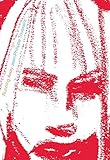 Making Love opens a trilogy united not just by a protagonist but by Marie. The second, Running Away, saw publication in 2005. Though Toussaint hasn’t been given to stylistic variation, something changes in this book’s prose. Perhaps one sentence’s worth of example:
Making Love opens a trilogy united not just by a protagonist but by Marie. The second, Running Away, saw publication in 2005. Though Toussaint hasn’t been given to stylistic variation, something changes in this book’s prose. Perhaps one sentence’s worth of example:
I became the person responsible for her suffering, I was the one who was tormenting her, without my even doing anything — my presence alone was making her suffer, my absence even more so — me, the one who wasn’t there when she needed me, not in Paris when she found out her father had died, not in Elba when she arrived, when all the practical details of the funeral had to be arranged, the one who, after having finally showed up, this morning, at the church, had immediately disappeared, before talking to her, before saying a single word to her, before kissing her and holding her in my arms, before sharing her pain, depriving her of my presence at the same time as making it flicker in front of her, causing her to tremble, giving her chills, just as I always did.
This, I would argue, does not read smoothly. Though interesting in places, I find it primarily generates a dull throb. Did Toussaint actually write the original sentences this way, all mismatching clauses grafted together with comma after comma after unsuitable comma? If so, does that flow better in French? Is this a case of too much faith to the original, or not enough?
In a way, you could call the story’s surviving clarity a transcendence of the style. The summer before the planned breakup their breakup, Marie sends the protagonist on a combined business trip and “pleasure junket” in Shanghai. Zhang Xiangzhi, a mild small-time gangster type, meets him at the airport and acts as his handler; later, a girl named Li Qi turns up and rapidly develops what seems to be a crush on our hero. Li Qi becomes, of course, the other player in that abortive sex scene discussed so tantalizingly on Bookworm. When not focused on racing over Beijing sidewalks or undressing Chinese women in train bathrooms, Running Away lays itself bare to the saddeningly common accusation that “nothing happens.” That’s not true, of course — it almost never is — but nor does the appeal of Jean-Philippe Toussaint lay in what he makes “happen.”
In French, the Marie trilogy is complete. (That, or it’s on its way to becoming a quadrilogy.) La Vérité sur Marie came out in 2009. Little about it has yet been revealed to the Anglophone public, but I hear the breakup has finally gone through. Of course, Marie’s having a new boyfriend won’t put an end to she and the protagonist’s trysts. Having undergone conversion into a Toussaint fanboy while reading his entire body of translated work, I can honestly say that I can’t wait to read about the trouble they drift into.
5. The infinitesimal novel
In a Q&A with Dalkey Archive’s Martin Riker, Toussaint said that “what really matters is to pay attention to what is both infinitely small and infinitely large,” that “a book must contain both darts and philosophy, bowling and metaphysics.” By some mixture of his own effort and his readers’, the applicable concept has come to be called the “infinitesimal novel,” that is to say, the novel that encompasses the infinitely large, the infinitely small, and as little as possible in between. Hence his protagonists’ consideration of vast, unanswerable moral, emotional and intellectual issues as they cut apart olives with their forks, toss pétanque balls, and stick their fingers where the sun don’t shine.
I find Toussaint’s feeling of freedom to do this fantastically refreshing. In an age when even superstar authors wring their hands about the purpose of the novel, the purity of the novel, and the viability of the novel, Toussaint sees it as a flexible form full of possibilities for comedy, melancholy, the cosmic, and the mundane. He seems untroubled by his art, which itself is an increasing rarity, but if he is troubled, it’s only by the question of how to keep things exciting.








